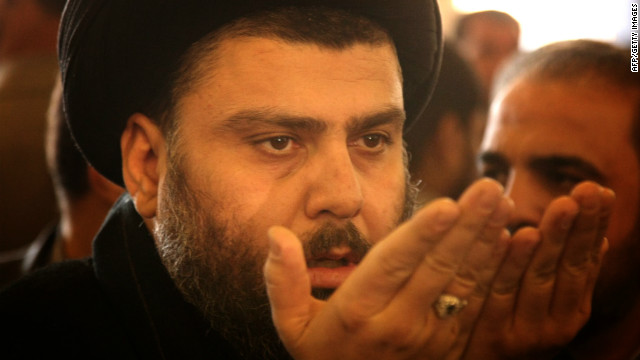Maybe this time al-Sadr, instead of being troublesome to the government, will use his huge militia to fight ISIS.
Moqtada al-Sadr is back, proving that he’s still a force in Iraqi politics
 shafaq news / Moqtada al-Sadr, the troublesome cleric whose militia repeatedly battled U.S. troops more than a decade ago, is back in action in Iraq — this time as a champion of political reforms.
shafaq news / Moqtada al-Sadr, the troublesome cleric whose militia repeatedly battled U.S. troops more than a decade ago, is back in action in Iraq — this time as a champion of political reforms.
And what a comeback it has been, replete with high political drama, bold gestures of choreographed symbolism and moments of nerve-racking tension that have seen Baghdad brace for a potential new war.
Sadr’s return to the limelight began in February, when he emerged from years of self-imposed retirement from politics to lead a mass protest campaign calling for the creation of a new government and an end to the corrupt practices of the country’s despised political elite.
Continue reading at:
Moqtada al-Sadr is back, proving that he’s still a force in Iraqi politics?
Moqtada al-Sadr is back, proving that he’s still a force in Iraqi politics
- Friday, 01 April 2016 20:21

And what a comeback it has been, replete with high political drama, bold gestures of choreographed symbolism and moments of nerve-racking tension that have seen Baghdad brace for a potential new war.
Sadr’s return to the limelight began in February, when he emerged from years of self-imposed retirement from politics to lead a mass protest campaign calling for the creation of a new government and an end to the corrupt practices of the country’s despised political elite.
Continue reading at:
Moqtada al-Sadr is back, proving that he’s still a force in Iraqi politics?


